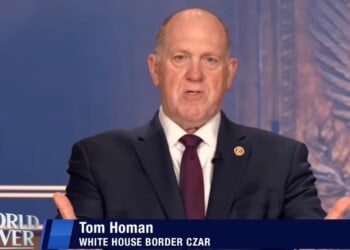“Well, that was quite something”
This verdict on Kemi Badenoch’s speech came to me shortly after she’d left the stage in Manchester, from a senior Conservative who I’d say was ambivalent at best about her near-year as leader. Not only was the speech ‘quite something’, having been expertly delivered, it had a big reveal. I said some time ago that if she wanted to use Conference to pop a top hat on the stage, she had to have more than just a rabbit to pull out of it.
The big risk with the big reveal is an audience that claps whilst thinking “is that it?“.
It was a fate that befell Rishi Sunak at his last Conference as Prime Minister.
But there it was. After months of membership and media pressure to “show us your home work” and speculation about her longevity in the job, with polls sticky around 16-17 per cent, here was her answer and judging by the reviews, from friend and foe alike, it was a zinger.
In terms of her own position, and members confidence in that, our survey suggests Conference, and the speech, worked on various levels but one was very much about her.
Before Conference respondents gave both their expectation and predictions about Kemi Badenoch’s leadership into the future:
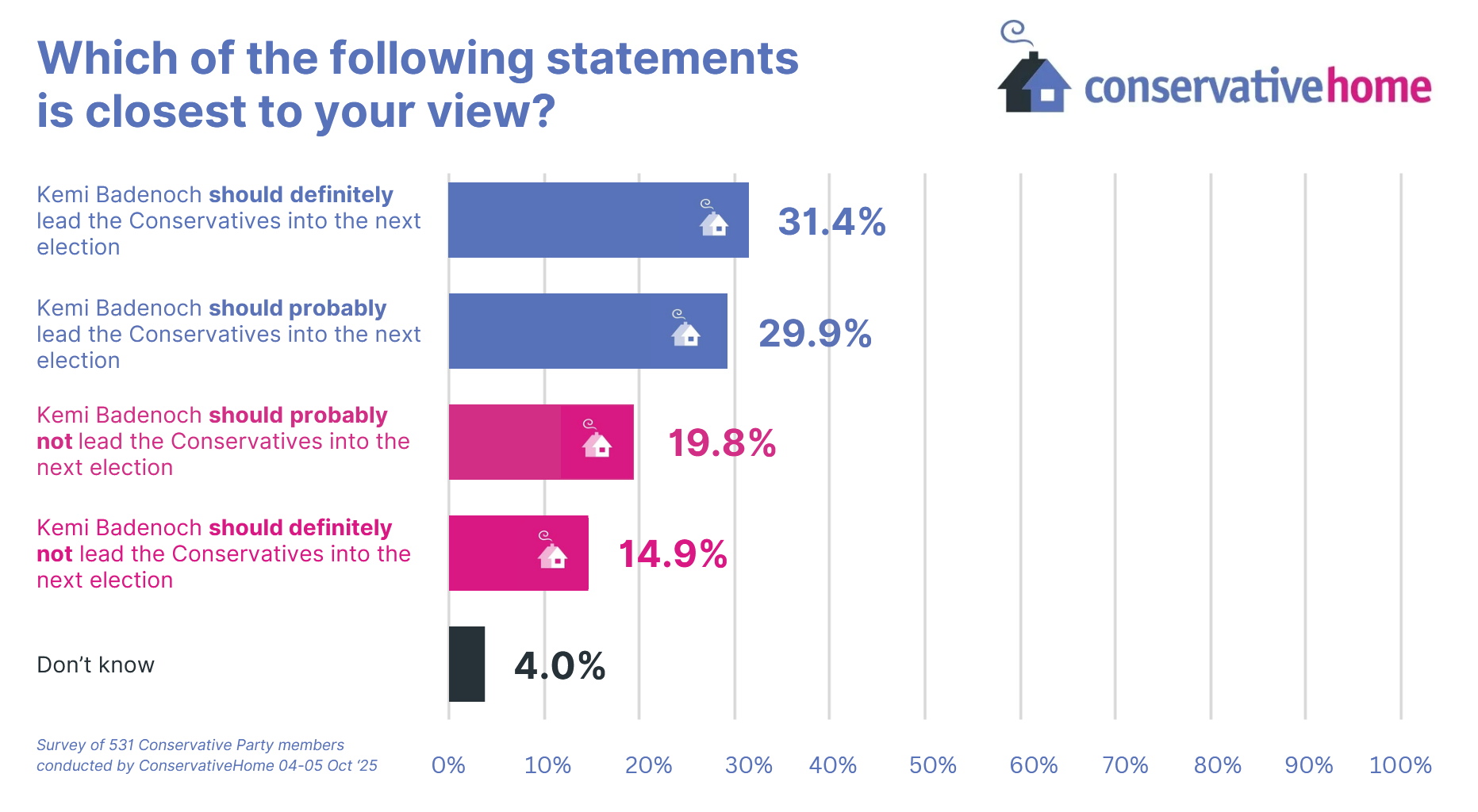
Her situation was not as bad as some might have been suggesting – possibly for their own agendas. Her net positives for what members thought should happen were over 60 per cent. This may reflect a general sense not necessarily about the individual that any leadership battle would be toxic right now for the party overall.
However what should happen, and what will happen are not the same, and before Conference predictions were 55.9 per cent in her favour to lead at the next election.
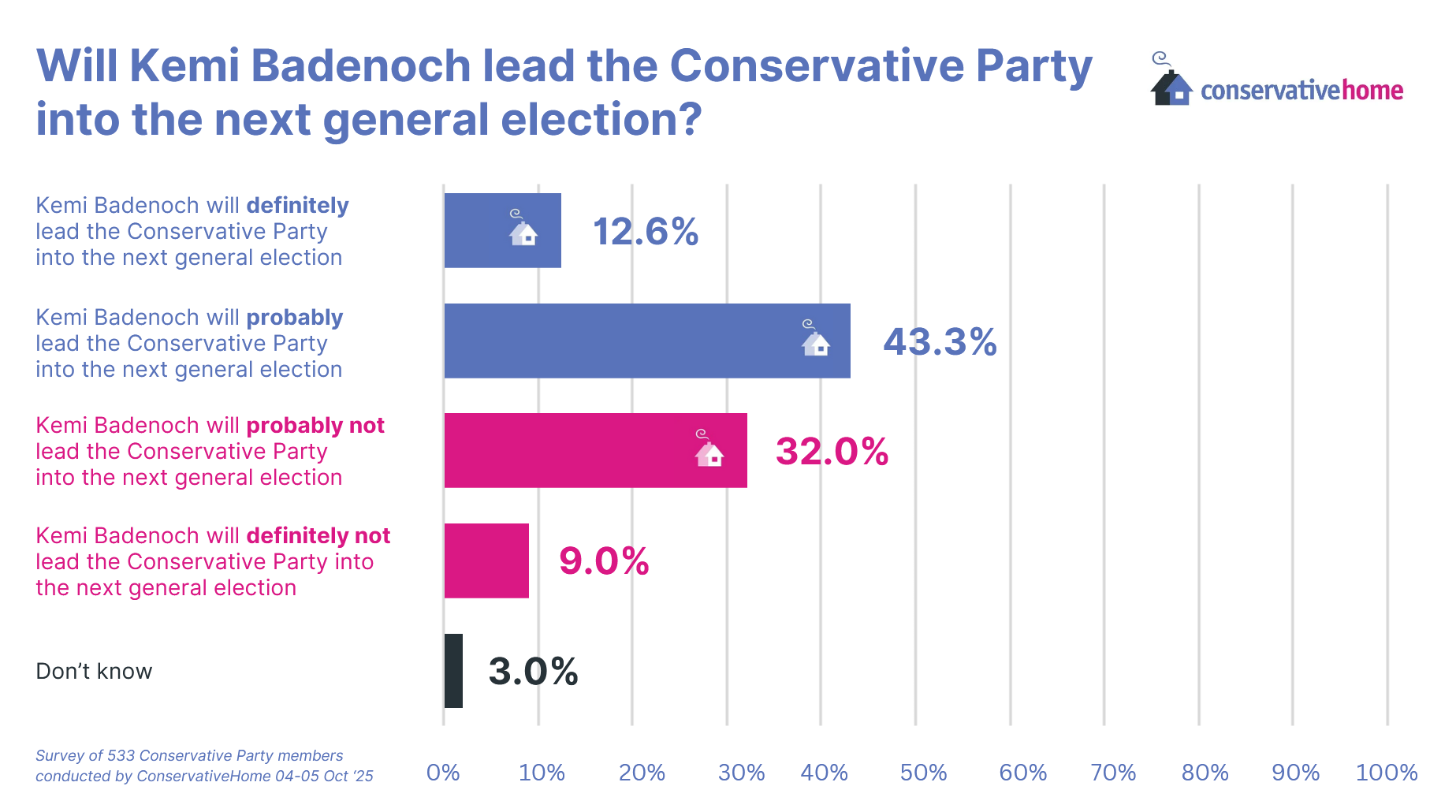
After Conference and after that speech, members were asked the same questions because whilst instinctively you’d expect a lift after the political and media response to it, the real questions involve delving into ‘how much of lift’?
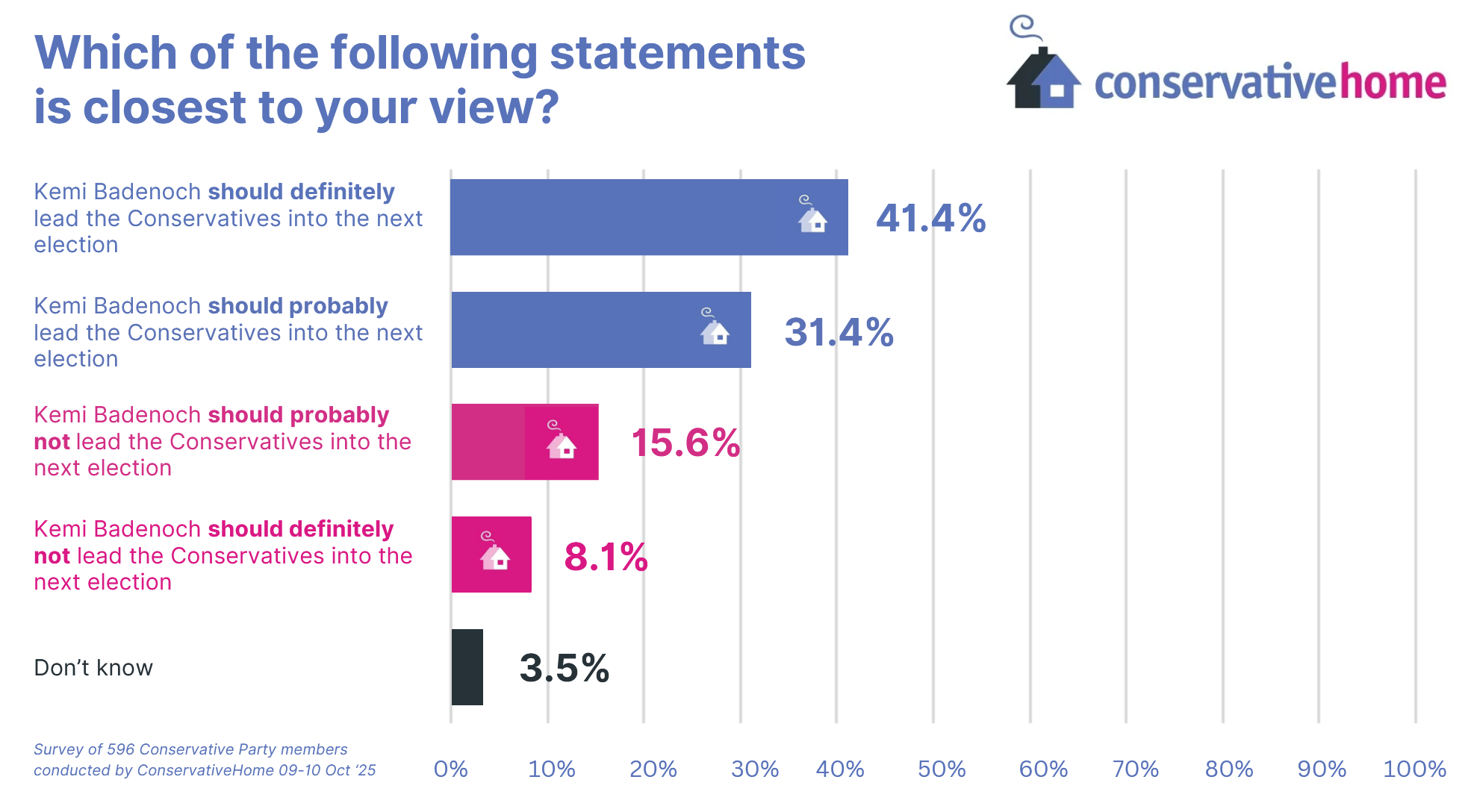 In terms of what should happen, the upsurge in positive is visible. 72.8 per cent of respondents say with varying degrees of support that she should lead the Conservatives into the next election. Before it was 61.3 per cent.
In terms of what should happen, the upsurge in positive is visible. 72.8 per cent of respondents say with varying degrees of support that she should lead the Conservatives into the next election. Before it was 61.3 per cent.
And will she?
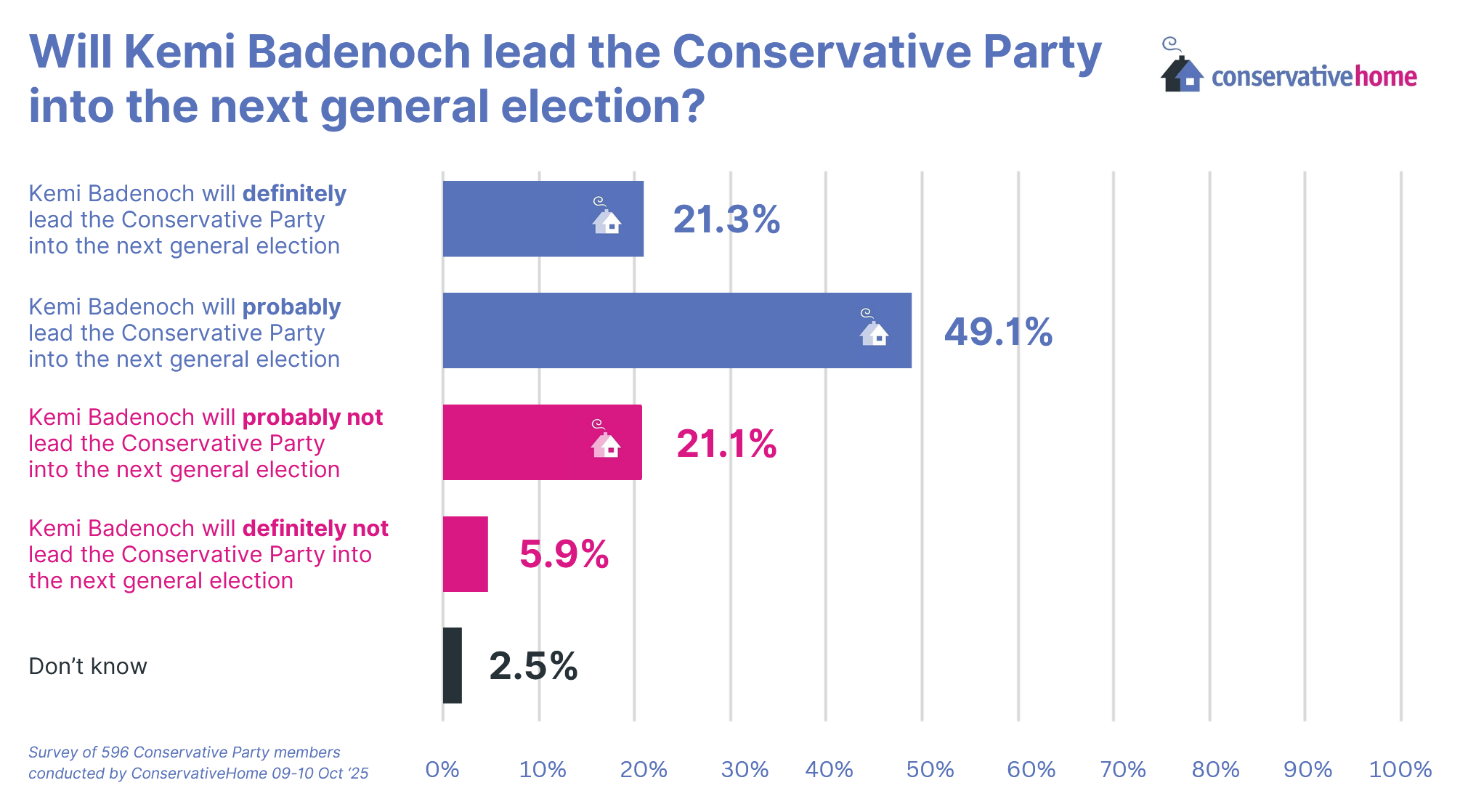
Again the change is positive for Badenoch in that post Conference the net prediction that she will lead into an election is 70.4 per cent and before Conference was 55.9 percent.
Politics is a rough sport. The applause and plaudits are only just finishing their final echoes and already the logical question comes, will it work?
The Conservatives, probably won’t get a big post Conference ‘bounce’. Indeed the hard road ahead to win back public trust and to earn the right to be heard is still laid out before them. Badenoch herself was clear about that, do not expect any thing to happen that is good news for the Tories without relentless hard work and no immediate reward.
She may have won the hall, but the entire vibe of Conference – that rumours of the death of the Conservatives are greatly exaggerated – had to go from Manchester to the membership, from podium to party and ultimately from dais to doorstep. Then, and only then, if it is received well might things start to lift.
Given expectations were so low about the party amongst our opponents, that even the ludicrous Steve Bray, that top hatted tribute to nominative determinism, couldn’t be bothered to turn up to protest, it is interesting how much effort and activity online Reform put in to tell everybody how ‘dead’ the Tory Conference was. It’s the sort of tactic that gives away the more the thing you’ve pronounced is ‘definitely dead’ starts more than twitching the more you loudly assert it’s absolutely dead.
It’s a lesson of war and politics to avoid fighting on two fronts.
It’s a reality of war and politics that very often you end up doing it any way.
Badenoch played quite a clever game in the speech indeed in all her language in the run up to Conference. She’s going to oppose the Government and attack Labour, whilst sticking a strong line of defence in front of the hoards from Reform.
Unlike Starmer and Davey, who sounded obsessed, by treating Farage as ‘he who should not be named’ Badenoch, far from ignoring the elephant in the room, reframed him on her own terms: the team versus the one man band, the long term homework versus the fag packet plan, the announcements that stick versus those that require immediate clarification. Experience versus not a clue.
In this framing, the defensive line has been drawn. Reform say of the Tories: ‘why believe they’ll do any of the things they can do when they didn’t before? You can’t trust them’
Kemi is saying of Reform without obsessing about Farage: ‘Reform won’t admit that they really can’t do all the things they are promising they will, and can’t pay for it. You can’t trust them’.
The interesting thing is a switch in Reform this week, into a new area: “any party on the Right should step aside and allow Reform a free run as we’ve got the big momentum”. Well, too soon, and frankly that message might land better if it wasn’t for a year of vowing to destroy the Tories – an odd thing to repeatedly promise to do to something they were so confidently confirming is already dead.
Which leaves the Tories back on the attack with Labour.
With an astonishing consistency they cannot repeat elsewhere in Government, Labour are already providing, post Conference season, more high value targets than they had served up before. It’s as if Starmer has spent a year allowing his most senior allies to do things and say things that mean he has to remove them or they remove themselves from Number 10.
Having worked in the Foreign Office myself and specifically on our relations with China, this latest scandal, and it is a scandal, over the dropping of the spy case, is another example of the Tory attack line, ‘when Labour negotiates Britain loses’.
The very fact that the case was ever brought to charges, and a date in court, was an indication of how strong a case had been built. Espionage case have always had a very high bar for proof.
So why was it dropped?
China will have done what it does and has always done. I’ve seen it with my own eyes, and navigated how you push back. They will know and will have spotted that Labour above everything wants economic growth and to do that has gone all out for a trade deal. The message to Starmer will have been diplomatically couched but stark:
“President Xi will be glad to host you in Beijing for talks on trade. However it would be unfortunate if meticulous planning for this visit should be disrupted by such anti-Chinese activities such as holding up our big new London embassy, or this politically motivated and entirely fabricated court case”
They are always looking for ways to save face when they are caught.
It would seem the Labour Government has made a choice, and it’s always been a balance, that the need to trade far outweighs national security.
It’s just the wrong choice. Very wrong.
So, post Conference Badenoch is more secure as leader, showed fire, and grit, has framed her defence against Reform, is attacking Labour with both barrels and has laid out to the the public what she’d do instead.
It’s not a bad way to exit the Conference season.
However the last hangover of Conference is still questions in the back of too many heads. It’s always numbers that get you, and even if not immediately, if the numbers don’t start to go up…is it enough? Will it work?
That our survey cannot tell you, yet.

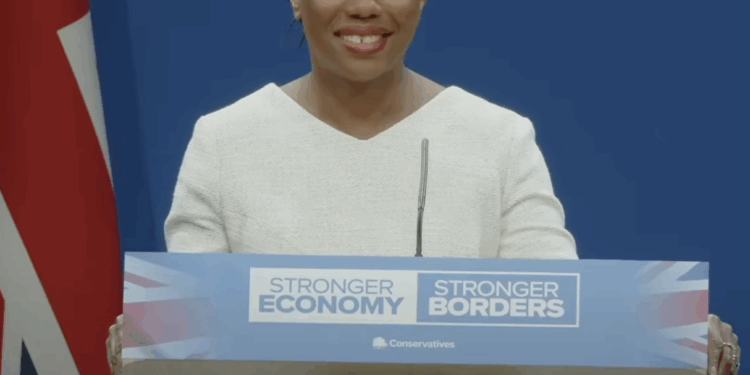






![Florida Officer Shot Twice in the Face During Service Call; Suspect Killed [WATCH]](https://www.right2024.com/wp-content/uploads/2025/12/Inmate-Escapes-Atlanta-Hospital-After-Suicide-Attempt-Steals-SUV-Handgun-350x250.jpg)
![Keith Ellison Caught Promising to Fight State Agencies for Somali Fraudsters [WATCH]](https://www.right2024.com/wp-content/uploads/2026/01/Keith-Ellison-Caught-Promising-to-Fight-State-Agencies-for-Somali-350x250.jpg)




